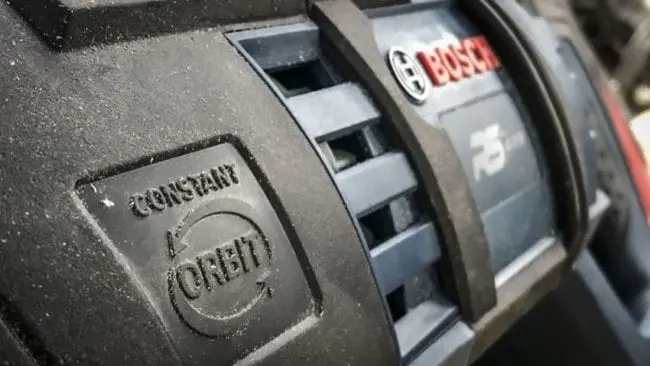Like many of its corded competitors, the Bosch RS428 14-amp reciprocating saw hasn’t seen a need for change in the last decade. When it comes to the 14-amp class, Bosch is pretty well on its own with most major brands moving up to a full 15-amp motor or settling in with a 13-amp motor. We tested this Bosch reciprocating saw against others with higher and lower amperages to see where it best fits.
Pros
- Compact size
Cons
- On the slower side for cutting speed
Recommendation
When the sawdust settled, it was clear that the Bosch RS428 is a closer match to the 13-amp class and is really outmatched by today’s 15-amp reciprocating saws. That’s not a knock against it, though. Its performance is in line with other 13-amp saws and you can find it on the lower side of the price scale there as well. As a step up in performance from Bosch’s RS325 (12-amp), it’s worth spending a little more if you’re a Bosch fan.
Buy it if you’re looking for something on the compact side of the 13-amp class. Pass if you want the best cutting speed or vibration control.
Bosch RS428 Cutting Speed
In our quest to discover where this Bosch reciprocating saw best fits, we put through a series of four cutting speed tests. You can see the details of our testing methods here.
Bosch pairs its 2900 SPM rate with a 1-1/4″ stroke length. On paper, it’s just a touch slower than the 3,000 SPM rate we see at the top while matching the stroke length. There’s also a constant orbital action. We’re up in the air on an orbital action you can’t turn off—it should mean that it’s helpful in wood cutting but adds more vibration to your metal cutting. However, it didn’t seem to have a huge negative effect on the 12-amp RS328’s metal cutting speed.
The stage was set early in our nail-embedded wood test. Bosch’s 17.89-second average put it in the range of the 13-amp class as it was more than 10 seconds away from any of the 15-amp saws. It was the slowest model in our roofing sandwich test as well.
Nail-Embedded Wood
- 13-Amp Range: 8.30 – 20.09 seconds
- 15-Amp Range: 5.99 – 7.11 seconds
Roofing Sandwich
- 13-Amp Range: not tested
- 15-Amp Range: 9.25 – 12.32 seconds
Moving onto metal, the performance gap between the two groups was much closer. Bosch’s 6.32-second average in 2″ EMT wasn’t tremendously slower than the 15s, but it was a better fit in the 13-amp group.
2″ EMT
- 13-Amp Range: 4.23 – 6.46 seconds
- 15-Amp Range: 3.45 – 5.02 seconds
The line between the two classes blurred in our rebar cutting test. Here, Bosch needed 7.37 seconds on average, only about 0.3 seconds slower than the 15-amp saws. However, its time and a couple of others from the 13-amp group were able to compete well against them.
#5 Rebar
- 13-Amp Range: 5.81 – 8.27 seconds
- 15-Amp Range: 5.27 – 7.37 seconds
Performance is really the deciding factor in deciding where a saw fits, and it’s clear you’re better off considering the Bosch RS428 in the 13-amp class rather than closing in on the cutting speed of the 15-amp saws. That said, it does okay. You can find a faster cutting saw in that class if you like, but it’s not so slow that we’d recommend you avoid it.
Vibration Control
Bosch did design some vibration controls into this model and you can tell using it side-by-side with saws that don’t. It’s not the most advanced, though. Compared to other saws that have a more well-developed counterbalance system, the Bosch RS428 has more vibration.
Additional Features
We already mentioned Bosch’s constant orbital action feature and this saw also has a pivoting, tool-free adjustable shoe. Like many of the corded saws we’ve tested, it’s pretty basic from there.
Here are some of the things you can find on other models that Bosch doesn’t include:
- Variable speed dial
- Rafter hook
- Blade ejection
- LED light
Size and Weight
The Bosch RS428 reciprocating saw is a pretty compact design. It measures just 18.9″ long, shorter than anything in the 13-amp or 15-amp classes. It’s pretty reasonable in the weight department as well. It weighed 9.6 pounds on our scale, just 0.2 pounds from the lightest in either class.
Price
The retail price on this model is $149, but we’ve seen it as low as $129 online recently. Prices in the 13-amp class are as high as $189 for Milwaukee’s 13-amp Super Sawzall and as low as $89 for Skilsaw’s 13-amp Buzzkill.
amzn_assoc_placement = “adunit0”;
amzn_assoc_search_bar = “true”;
amzn_assoc_tracking_id = “protoorev-20”;
amzn_assoc_ad_mode = “manual”;
amzn_assoc_ad_type = “smart”;
amzn_assoc_marketplace = “amazon”;
amzn_assoc_region = “US”;
amzn_assoc_title = “”;
amzn_assoc_linkid = “7a00e7fd1839b2a56a54689104aea58a”;
amzn_assoc_asins = “B0017H5MQC,B004XPD6M2,B00N5FLVM8,B0009OR91U”;
The Bottom Line
When the sawdust settled, it was clear that the Bosch RS428 is a closer match to the 13-amp class and is really outmatched by today’s 15-amp reciprocating saws. That’s not a knock against it, though. Its performance is in line with other 13-amp saws and you can find it on the lower side of the price scale there as well. As a step up in performance from Bosch’s RS325 (12-amp), it’s worth spending a little more if you’re a Bosch fan.
Bosch RS428 14-Amp Reciprocating Saw Specs
- Model Number: Bosch RS428
- Motor: 14A, 120V
- Measured Length: 18.9″
- No-Load SPM: 0-2900
- Stroke Length: 1.125
- Measured Weight: 8.65 lb
- Price: $149










